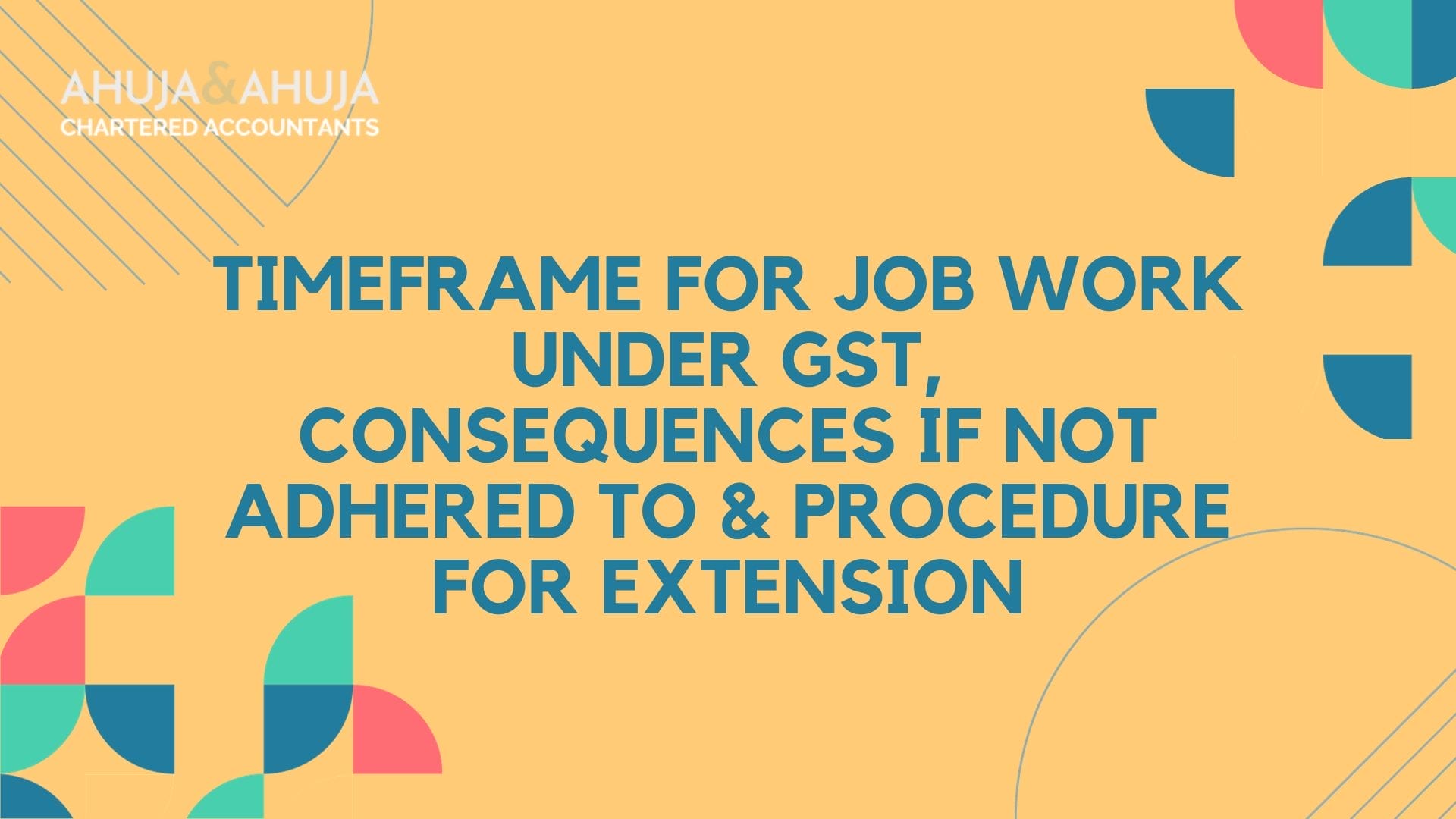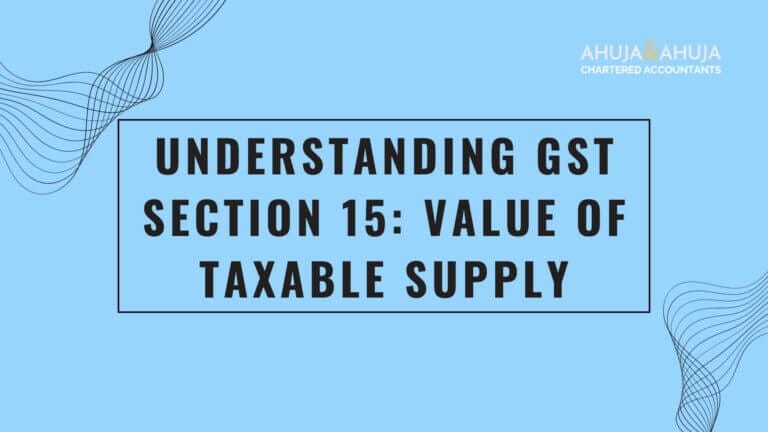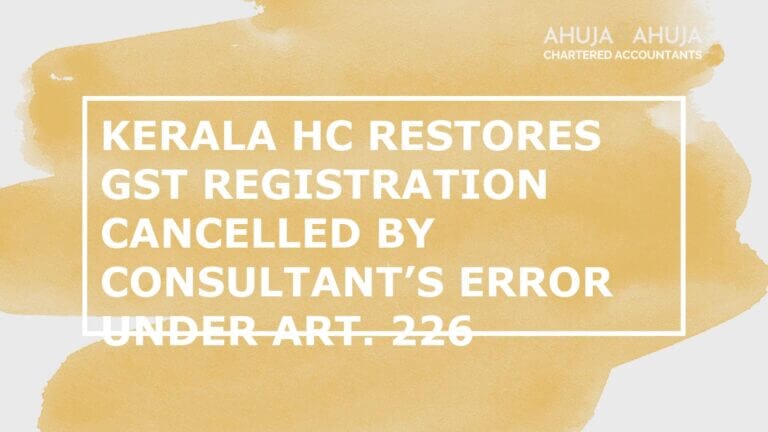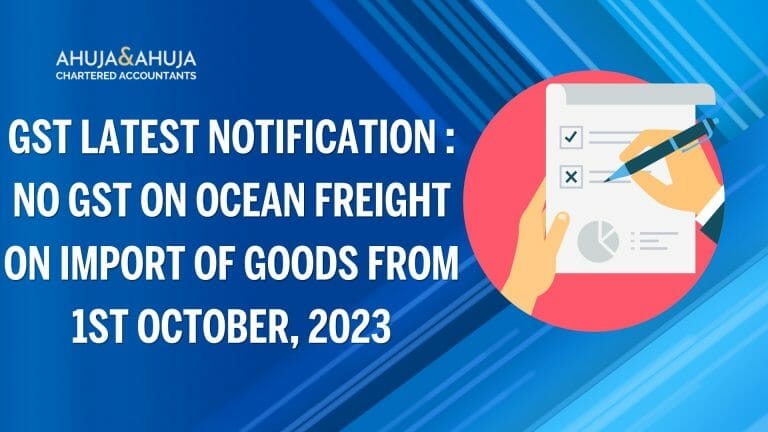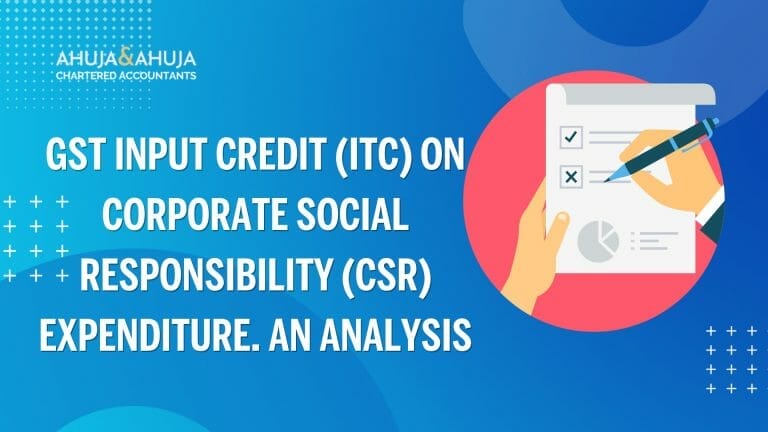Timeframe for Job Work under GST, Consequences of Delay & Extension Procedure
In the diverse tapestry of India’s taxation framework, the Goods and Services Tax (GST) is a critical unifier of indirect taxes, streamlining the complexities into a more cohesive structure. Within this framework, Job Work represents a unique dance of collaboration between businesses, epitomized by a synergistic exchange of expertise and resources.
Imagine a scenario where a principal manufacturer has orchestrated a symphony of raw materials but requires the specialized skills of a maestro to compose the final score. This is where the Job Worker steps in. By definition, as per Section 2(68) of the CGST Act, 2017, Job Work is a bespoke process, a meticulous treatment carried out by a Job Worker on goods belonging to another registered person, known as the Principal. Unlike traditional transactions, the ownership of the goods remains in the secure hands of the Principal, with the Job Worker applying their artisanal skills to shape the final masterpiece.
Under GST, this intricate relationship has unique implications. The transfer of raw materials or semi-finished goods to a Job Worker for processing is tagged as a “supply.” However, it comes with a melodious clause. If the Job Worker returns these polished goods within a specified time frame — and without any fiscal expectations — the act escapes the realm of GST. But should these time frames be missed, the silent notes of non-compliance echo with fiscal consequences.
A detailed checklist of GST Returns is invaluable for businesses to harmonize their compliance and ensure their GST symphony plays without a hitch.
The Principal and Job Worker Under GST
In this dual act, both players have significant roles. The principal, the grand conductor, must oversee that the job worker, their virtuoso, is registered under GST, particularly if their annual turnover hits the prescribed ceiling. Such registration ensures harmony in compliance and brings to the forefront an understanding of the responsibilities enshrined under GST.
Should the job worker create a magnum opus that draws the principal’s applause, a tax invoice can mark this success, attracting GST on these finished goods. For aspiring job workers and principals eager to chart these waters, understanding GST Registration Services in India helps facilitate a seamless beginning to their concerto.
As India’s economic orchestra plays on, the synchronized effort between a job worker and a principal can result in a composition greater than the sum of its parts — one that resonates with the virtues of industry, innovation, and meticulous compliance under the sprawling canopy of GST.
Timeframes for Job Work under GST
Understanding the Time Limit for Returning Goods Sent for Job Work
In the symphony of business collaborations, time is of the essence. When it comes to job work under GST, there are specific timeframes within which the processed goods must be returned to the principal. Deviating from these deadlines can have significant implications. Let’s explore the time limits for returning goods sent for job work:
- Time Limit for Inputs: As per Section 19(3) read with 143(3) of the CGST Act, when inputs (goods) are sent for job work without payment of tax, and neither received back within one year nor supplied from the job worker’s premises, it will be considered as though the principal has supplied the goods to the job worker on the date when they were sent out for job work.
- Time Limit for Capital Goods: Similarly, as per Section 19(6) read with 143(4) of the CGST Act, when capital goods are sent for job work without payment of tax, and neither received back within a period of three years nor supplied from the premises, it will be deemed that the principal has supplied the goods to the job worker on the date when they were sent out for job work.
It is important to note that if the inputs or capital goods are sent directly to the job worker, the time limit will be calculated from the date of receipt of inputs or capital goods by the job worker.
Extension of Time Limit
To accommodate certain scenarios, the commissioner has been empowered through an amendment to extend the time limit for returning goods sent for job work. The amendment, effective from 1st February 2019, allows for an additional period for both inputs and capital goods:
- Inputs: An additional period of one year can be granted, extending the total time limit to two years.
- Capital Goods: An additional period of two years can be granted, extending the total time limit to five years.
It is important for businesses engaged in job work to understand and abide by these timeframes to avoid any adverse consequences.
Consequences of Not Adhering to Timeframes
Impact of Not Returning Goods within the Specified Time
Timeliness is crucial in the world of job work under GST. Failure to adhere to the specified timeframes for returning goods sent for job work can lead to significant consequences for the principal. Let’s explore the potential ramifications:
- Tax Liability: If the inputs or capital goods are not returned within the specified time limit, it will be deemed that the principal has supplied the goods to the job worker. As a result, the principal will be liable to pay tax on the deemed outward supply.
- Interest Charges: Along with the tax liability, the principal will also be liable to pay interest at a rate of 18% per annum from the day the goods were sent out for job work. The interest charges will apply on the tax amount that becomes due as a result of the deemed outward supply.
- Disclosures in GSTR-3B & GSTR-1: The principal will be required to make corresponding disclosures in their GSTR-3B and GSTR-1 returns to reflect the deemed outward supply and the tax liability arising from it. It is crucial for businesses to accurately report these transactions to maintain compliance with GST regulations.
It’s important to note that unless the job worker makes payment against an invoice to the principal, they will not be eligible to claim input tax credit under Section 16 of the CGST Act. Job workers are advised to make payments, claim the credit, and include those transactions as part of their valuation for services rendered.
To avoid any disputes with the tax department, it is advisable to ensure that the time limit extension of two years for inputs and five years for capital goods is availed wherever applicable. Exploring the option to return and receive back such inputs or capital goods can also be considered to maintain compliance and avoid any financial implications.
Procedure for Extension of Time Limit
Steps for Extending the Time Limit for Job Work under GST
In certain cases, businesses may require an extension on the time limit for returning goods sent for job work under GST. The process for seeking an extension is outlined below:
- Inputs: If the principal needs an extension on the time limit for returning inputs, they can follow these steps:
a. Approach the commissioner of central tax or state tax, providing valid reasons for the request.
b. Submit an application in writing, stating the need for the extension and the duration of the requested extension.
c. Ensure that all supporting documents and justifications are provided along with the application. - Capital Goods: If the principal requires additional time to return capital goods, they should adhere to the following process:
a. Approach the commissioner of central tax or state tax and explain the reasons for the extension request.
b. Submit a written application, clearly stating the need for the extension and the requested duration.
c. Provide the necessary supporting documents and justifications to support the application.
It is important to note that the discretion to grant the extension lies with the commissioner. The commissioner will evaluate the reasons provided and may approve the extension based on their assessment.
Seeking an extension on the time limit can provide businesses with the necessary flexibility to ensure smooth operations and adherence to compliance requirements.
Practical Tips for Businesses
Navigating Job Work under GST with Ease
Job work under GST can be a complex process, requiring meticulous attention to compliance and operational efficiency. To help businesses navigate this landscape effectively, here are some practical tips:
- Maintain Accurate Records: It is crucial for both principals and job workers to maintain accurate records of the goods sent for job work, their processing details, and the timely return of the processed goods. Proper documentation ensures transparency and aids in compliance.
- Track Timeframes: Businesses should closely monitor the timeframes for returning goods sent for job work. Prompt action should be taken to ensure that goods are returned within the specified time limits or after seeking an extension, as per the need.
- Utilize Technology: Employing robust accounting and inventory management systems can help streamline job work processes. These systems can track the movement of goods, record processing details, and generate compliance-related reports.
- Regularly Review Compliance Requirements: Stay updated with the latest GST regulations, notifications, and circulars related to job work. Regularly reviewing compliance requirements ensures that businesses remain aligned with the prevailing legal framework.
- Seek Professional Assistance: Engaging the services of qualified professionals, such as chartered accountants or GST consultants, can provide valuable guidance in navigating the complexities of job work under GST. They can assist in ensuring compliance, structuring transactions, and mitigating any potential risks.
By implementing these practical tips, businesses can optimize their job work processes, streamline compliance, and mitigate the risk of non-compliance.
FAQs (Frequently Asked Questions)
Does a job worker need to register under GST?
Yes, a job worker is required to register under GST if their annual turnover exceeds the threshold limit, even if they are not engaged in any taxable supply.
Is GST applicable when the job worker returns the processed goods?
If the job worker returns the processed goods to the principal within the specified time frame and without any consideration, it will not be considered as a supply and will not attract GST. However, if the processed goods are supplied back to the principal, the job worker can issue a tax invoice, which will be subject to GST.
Can a job worker claim input tax credit?
A job worker can claim input tax credit only if they make payment against an invoice issued by the principal. Without payment and a valid invoice, the job worker won’t be eligible for input tax credit.
How can a job worker ensure compliance with GST regulations?
Job workers should maintain accurate records of goods received, processing details, and the return of processed goods. They should also track timeframes, seek extension if required, and maintain regular communication with the principal to ensure compliance.
What are the implications of not adhering to the timeframes for returning goods?
If the inputs or capital goods are not returned within the specified time limit, the principal will be liable to pay tax and interest at 18% per annum from the day the goods were sent out for job work. Corresponding disclosures need to be made in GSTR-3B and GSTR-1 returns.
Conclusion
Embracing Efficiencies in Job Work under GST
Job work under GST presents a unique dance of collaboration, where principals and job workers harmonize their efforts to create a symphony of goods. Adhering to the timeframes for returning goods, seeking extensions when necessary, and maintaining compliance are crucial aspects for businesses engaged in job work.
By understanding the implications of job work under GST, implementing practical tips, and seeking professional guidance when needed, businesses can optimize their operations and navigate the complexities with ease. Technology-driven systems, robust documentation, and regular compliance reviews contribute to the smooth orchestration of job work processes.
As India’s GST ecosystem evolves, and businesses continue to embrace efficiencies, job work remains a valuable avenue for collaboration and value creation. By adhering to the regulatory framework and exploring opportunities for improvement, businesses can orchestrate their role in a successful and compliant GST symphony.
In conclusion, job work under GST requires meticulous attention to compliance and adherence to timeframes. By understanding the implications, seeking extensions when necessary, and implementing practical tips, businesses can navigate the complexities of job work effectively. With the right approach and commitment to compliance, principals and job workers can create a harmonious partnership within the GST ecosystem.
Disclaimer
The materials provided herein are solely for educational and informational purposes. No attorney/professional-client relationship is created when you access or use the site or the materials. The information presented on this site does not constitute legal or professional advice and should not be relied upon for such purposes or used as a substitute for professional or legal advice.

